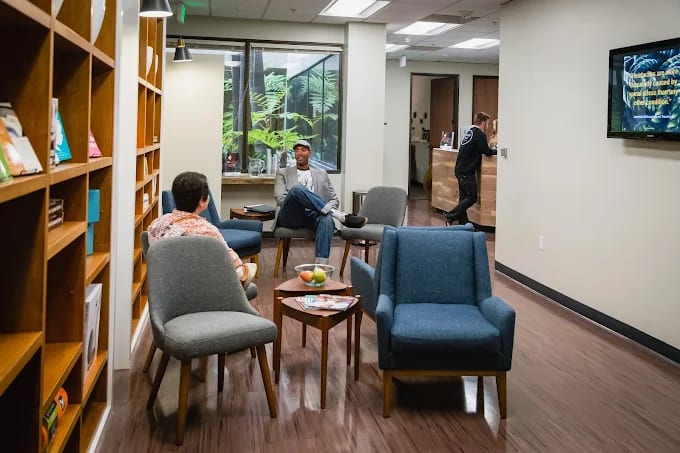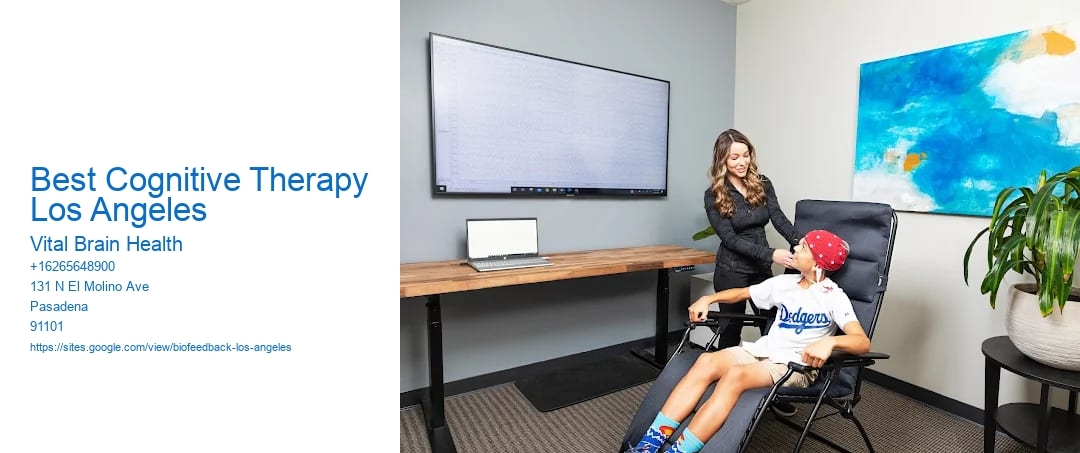Types of Cognitive Therapy Offered
Cognitive therapy is a powerful tool in the realm of mental health, designed to help individuals identify and alter dysfunctional thoughts and behaviors. Cognitive Therapy Los Angeles CA . In a bustling metropolis like Los Angeles, where the pace of life is rapid and the pressure to succeed can be intense, cognitive therapy is not just beneficial but often essential. Various types of cognitive therapy are offered in this vibrant city, each tailored to meet the diverse needs of its inhabitants.
Cognitive Behavioral Therapy (CBT) is perhaps the most well-known form of cognitive therapy. CBT focuses on identifying and challenging negative thought patterns and behaviors. Therapists work collaboratively with clients to develop practical skills and strategies for managing issues like anxiety, depression, and stress. In Los Angeles, CBT is widely available and is often sought after by those who thrive in structured, goal-oriented environments.
Another popular form of cognitive therapy in Los Angeles is Dialectical Behavior Therapy (DBT). Originally developed to treat borderline personality disorder, DBT has expanded to address a range of emotional and behavioral issues. It emphasizes the balance between acceptance and change, teaching clients how to regulate emotions, tolerate distress, and improve interpersonal relationships. Given the citys diverse population, DBT programs often incorporate multicultural perspectives, making them particularly effective in Los Angeles.
Mindfulness-Based Cognitive Therapy (MBCT) is also gaining traction in Los Angeles. This approach combines traditional cognitive therapy techniques with mindfulness strategies to prevent the recurrence of depression and anxiety. By encouraging clients to focus on the present moment and develop a non-judgmental awareness of their thoughts and feelings, MBCT can be incredibly grounding in a city that never seems to stop moving.
Moreover, Acceptance and Commitment Therapy (ACT) is offered by many therapists in Los Angeles. ACT focuses on helping individuals accept their thoughts and feelings rather than fighting them, and it encourages taking action aligned with personal values. In the fast-paced and often uncertain environment of Los Angeles, ACT provides a means to find meaning and purpose amidst chaos.

Los Angeles is home to a multitude of mental health professionals who are skilled in these various cognitive therapies. Whether someone is seeking help for personal issues, relationship challenges, or professional stress, there is a type of cognitive therapy available that can meet their needs. The citys rich tapestry of cultural backgrounds and lifestyles means therapists often tailor their approaches to fit the unique circumstances of each client.
In conclusion, the array of cognitive therapy options available in Los Angeles is both diverse and comprehensive. From CBT and DBT to MBCT and ACT, each form offers a unique approach to mental health, catering to the varied needs of the citys residents. By engaging in cognitive therapy, individuals in Los Angeles can gain valuable insights into their thought processes and develop effective strategies for improving their mental well-being.
Qualifications and Experience of Therapists
When seeking the best cognitive therapy in Los Angeles, one of the most critical factors to consider is the qualifications and experience of the therapists. Cognitive therapy, a branch of cognitive-behavioral therapy (CBT), is a well-established psychological treatment that focuses on altering dysfunctional thinking patterns, emotions, and behaviors. To ensure effective treatment, it is imperative to choose a therapist who not only possesses the necessary credentials but also has substantial experience in the field.
Firstly, qualifications serve as a fundamental indicator of a therapists ability to provide competent care. In the United States, a therapist practicing cognitive therapy should have at least a masters degree in psychology, counseling, social work, or a related field. Many therapists also pursue doctoral degrees (Ph.D. or Psy.D.) to further enhance their expertise. Furthermore, they should be licensed by the state of California, which requires rigorous exams and ongoing education to maintain licensure. This ensures they are up-to-date with the latest research and techniques in cognitive therapy.

In addition to formal education, specific training in cognitive-behavioral techniques is essential. Therapists often undergo specialized training programs or workshops that focus on cognitive therapy approaches. Some may also gain certification from recognized bodies such as the Academy of Cognitive Therapy, which provides additional validation of their skills in this modality. These certifications demonstrate a therapists commitment to mastering cognitive therapy and their dedication to providing high-quality treatment.
Experience is another crucial aspect to consider when selecting a cognitive therapist. A seasoned therapist with years of practice is likely to have encountered a wide range of issues and client needs, equipping them with the nuanced understanding required to tailor therapy effectively. Experienced therapists typically develop an intuitive grasp of how cognitive distortions manifest in various disorders, be it anxiety, depression, or post-traumatic stress disorder, allowing them to implement strategies that are most likely to yield positive outcomes for their clients.
Moreover, experienced therapists often contribute to the field through research, publications, or teaching, further solidifying their expertise. They may participate in professional networks, attend conferences, and engage in peer supervision, all of which enhance their ability to apply cognitive therapy principles effectively.
In conclusion, when searching for the best cognitive therapy in Los Angeles, the qualifications and experience of therapists should be at the forefront of your decision-making process. A well-qualified and experienced therapist can offer a safe, supportive environment where clients can work through their challenges and build healthier cognitive patterns. By prioritizing these attributes, individuals can increase their chances of successful therapy outcomes and embark on a path toward improved mental health and well-being.

Success Stories and Testimonials
Success stories and testimonials are powerful narratives that illuminate the transformative impact of cognitive therapy, particularly in a bustling metropolis like Los Angeles. Known for its dynamic lifestyle, the city presents unique challenges that can sometimes take a toll on mental well-being. Fortunately, the best cognitive therapy options in Los Angeles have been pivotal in helping individuals navigate these challenges, fostering growth and resilience through their personalized approaches.
One such success story involves a young professional named Sarah, who was grappling with anxiety and stress due to the fast-paced demands of her career in the entertainment industry. Los Angeles holistic brain therapy Despite her initial skepticism, Sarah sought the help of a renowned cognitive therapist in Los Angeles. Through therapy, she learned to identify and reframe negative thought patterns that were contributing to her anxiety. Over time, Sarahs outlook transformed, and she was able to manage her stress effectively, leading to improved performance at work and a more balanced personal life. Her testimonial highlights not just the efficacy of cognitive therapy but also the compassionate support she received from her therapist, which played a crucial role in her journey.
Another compelling testimonial comes from Mark, a college student who struggled with depression and feelings of inadequacy. With the help of a cognitive therapist in Los Angeles, Mark embarked on a journey of self-discovery. The therapist helped him challenge limiting beliefs and develop coping strategies that empowered him to take control of his mental health. Mark's story is a testament to the profound impact that cognitive therapy can have on young adults, especially in a city teeming with opportunities and pressures.
These stories are just a glimpse into the vast array of experiences shared by those who have benefited from cognitive therapy in Los Angeles. The testimonials emphasize the personalized nature of the therapy, where therapists tailor their strategies to meet the unique needs of each individual. This approach not only helps in addressing specific issues but also equips clients with the tools necessary for long-term mental well-being.
In conclusion, the success stories and testimonials of cognitive therapy clients in Los Angeles underscore the therapys effectiveness in fostering personal growth and mental wellness. They serve as inspiring reminders of the potential for change and the power of professional guidance in overcoming lifes challenges. As more individuals share their experiences, the reputation of cognitive therapy as a vital resource for mental health continues to grow, offering hope and healing to many in the vibrant city of Los Angeles.
How to Choose the Right Therapist for Yo
Choosing the right therapist is a crucial step in your journey towards mental well-being, especially when seeking cognitive therapy in a bustling city like Los Angeles. Cognitive therapy, known for its structured approach to addressing dysfunctional thoughts and behaviors, can be a powerful tool for those dealing with a range of issues such as anxiety, depression, or stress. However, the effectiveness of therapy often hinges on finding a professional who resonates with you personally and professionally. Here are some considerations to guide you in choosing the right therapist for cognitive therapy in Los Angeles.
Firstly, its important to understand your specific needs and goals. Are you seeking therapy for a specific condition, or are you looking for general support and self-improvement? Being clear about your objectives can help you narrow down therapists who specialize in areas relevant to your concerns. In Los Angeles, where there is a diverse pool of specialists, identifying your needs can make the search more manageable.
Secondly, consider the therapists credentials and experience. Cognitive therapy requires a structured approach, so its essential to choose a therapist who is not only licensed but also has specific training and experience in cognitive behavioral techniques. You might want to look for therapists who have additional certifications or have published work in the field, as this can be an indicator of their expertise and commitment to their practice.
The third factor is the therapists approach and personality. Therapy is as much about the interaction as it is about the techniques used. During your initial consultation, pay attention to how comfortable you feel discussing your issues with the therapist. A good therapist should be empathetic, patient, and skilled at creating a safe environment for you to express yourself without judgment. In a city as diverse as Los Angeles, you have the opportunity to find a therapist whose cultural background, language skills, or life experiences resonate with your own, which can be particularly beneficial in building a strong therapeutic alliance.
Additionally, practical considerations such as location, availability, and cost should not be overlooked. Los Angeles is known for its traffic and sprawling geography, so finding a therapist whose office is conveniently located can reduce stress and make it easier to maintain regular sessions. Also, ensure that their availability aligns with your schedule. It is worth discussing fees upfront and whether they accept your insurance to avoid any financial surprises down the line.
Lastly, don't be afraid to trust your instincts. If after a few sessions you feel that the therapist is not the right fit, it's okay to look for someone else. Therapy is a personal journey, and the right therapist should feel like a supportive partner in helping you achieve your mental health goals.
In conclusion, while Los Angeles offers a wealth of options for cognitive therapy, selecting the right therapist requires thoughtful consideration of your needs, the therapist's qualifications, and practical aspects of the therapy sessions. By taking the time to find a therapist who aligns with your personal and therapeutic needs, you set the stage for a successful and transformative therapeutic experience.
